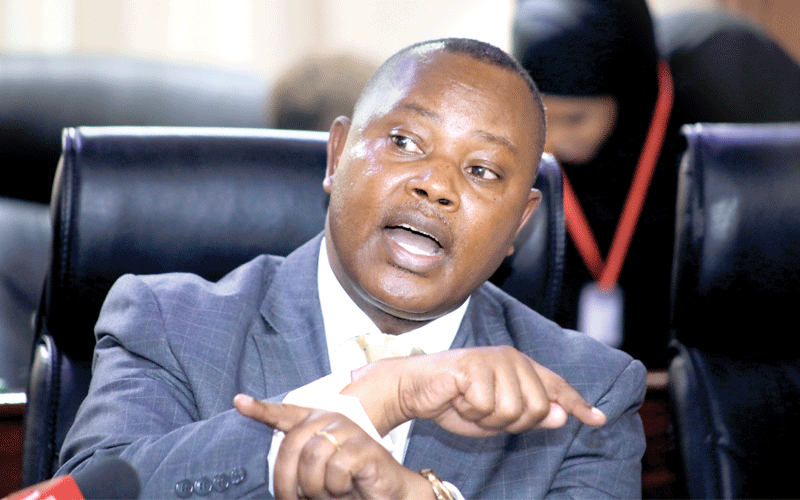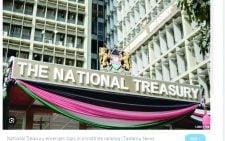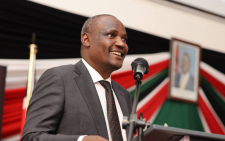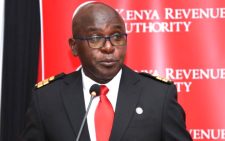Mystery of junior Treasury staffer worth Sh700m

In a case that gives a glimpse into the intricate operations of corruption cartels and their tentacles in government, a multi-agency team is investigating how a former messenger at the National Treasury was paid more than Sh700 million for allegedly offering consultancy services to State departments.
The 38-year-old millionaire messenger from Migori, who resigned when he learned detectives were after him over his unexplained fortune, is said to have made about Sh700 million between 2014 and 2017 for offering services, including to a department under the Water ministry.
His tender entrepreneurial adventures within government easily makes him the envy of his colleagues in the messenger cadre—the lowest in the civil service with an average monthly salary of Sh20,000.
Luxury vehicles
According to detectives from the Anti-Banking Fraud Unit, Directorate of Criminal Investigations, National Intelligence Service, Kenya Revenue Authority and Ethics and Anti- Corruption Commission, the man has purchased a block of apartments, luxury vehicles and toured several countries.
Yesterday, DCI boss George Kinoti confirmed investigations were ongoing into the case.
“We suspect that the junior officer was being used by some crooked senior officials to loot the government. We shall go for all of them once the investigations are complete,” he said.
Contacted by People Daily, the former Treasury employee declined to comment, but later confirmed through a proxy that his bank accounts had been frozen pending investigations over suspicious transactions.
According to a preliminary report detailing transactions in his three accounts—a dollar account and two for local currency—the messenger has substantive investment in the transport industry and has two pieces of land in Githurai Kimbo and Mavoko.
Consultancy services
For instance, in March 2016, he is said to have sold a piece of land in Kiu, Ruiru in Kiambu county for about Sh14 million.
The junior civil servant, who works closely with his wife, girlfriend and two brothers, has links to 18 companies, but he is only registered as a director of LVL company.
He also has a number of vehicles registered in his name. Detectives have compiled a list of vehicles the man owns and say most of them were registered in 2014.
In September 2014, trading as BS company, he received Sh27.8 million for consultancy services for the construction of an abattoir.
Between April 2014 and December 2016, the company was paid Sh103.3 million. Investigators are yet to establish how one of the Sh27 million payments of was never captured in the Interrogated Financial Management Information System (IFMIS).
Another payment being investigated is that of Sh42 million that was paid in October 2014 to another company linked to him. Earlier, in July the same year about Sh20 million was paid to the same company, but was never captured in IFMIS.
The man also received about Sh81 million through an incorporated company that offered consultancy services to Kimira Oluch Smallholder Farm Improvement Project, a multi-billion-shilling project in Karachuonyo and Rangwe constituencies, Homa Bay county. It was, however, not clear how he tendered for the public project.
System loopholes
A company associated with the messenger is also alleged to have been in June 2015 involved in the recycling industrial waste in North Eastern Kenya and was also paid about Sh24 million by a State department involved in sports around June 2016.
Leveraging on loopholes within the system, top civil servants, otherwise known as tender-revenuers, use proxies to trade with State agents, but ultimately, the money finds its way into pockets of the real owners.
They easily bypass procurement firewalls, manipulating the system to give themselves the lucrative tenders, earning top dollar for work which they sometimes never deliver because they are the overseers of the deliverables, thanks to the 1970 Ndegwa Commission that allowed serving civil servants to engage in business.
The Ndegwa team—the Public Service Structure and Remuneration Commission—was chaired by former Central Bank Governor Duncan Ndegwa was tasked to address the low earnings of public servants.
But the team has been blamed for the runway corruption and abuse of office, especially by top civil servants, who use proxies to enrich themselves from public coffers.
And in efforts to weed out graft in government, the recently-launched Building Bridges Initiative report has proposed that the Ndegwa Commission recommendations be reversed.















